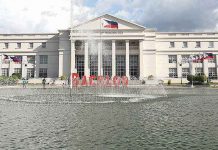
[av_one_full first min_height=” vertical_alignment=” space=” custom_margin=” margin=’0px’ padding=’0px’ border=” border_color=” radius=’0px’ background_color=” src=” background_position=’top left’ background_repeat=’no-repeat’ animation=”]
[av_heading heading=’NegOcc vice guv not sold on federal gov’t’ tag=’h3′ style=’blockquote modern-quote’ size=’30’ subheading_active=’subheading_below’ subheading_size=’18’ padding=’10’ color=” custom_font=” av-medium-font-size-title=” av-small-font-size-title=” av-mini-font-size-title=” av-medium-font-size=” av-small-font-size=” av-mini-font-size=” admin_preview_bg=”]
BY RANIE AZUE
[/av_heading]
[av_textblock size=” font_color=” color=” av-medium-font-size=” av-small-font-size=” av-mini-font-size=” admin_preview_bg=”]
Friday, March 16, 2018
[/av_textblock]
[av_textblock size=’18’ font_color=” color=” av-medium-font-size=” av-small-font-size=” av-mini-font-size=” admin_preview_bg=”]
BACOLOD City – Vice Gov. Eugenio Jose Lacson of Negros Occidental is not really sold on the proposed shift to a federal form of government from the present unitary system.
The proponents claim that the new system will raise local revenue shares, but this does not cut it, Lacson stressed.
Federalism is one of the thrusts of the Rodrigo Duterte administration.
There is a need for more studies and actual consultation with and dissemination of information to the grassroots on the need to shift to a federal government, Lacson insisted.
Lacson believes many Filipinos still do not understand how a federal government works and will benefit them.
There is no need to change the Charter if only for the projected increase in the income shares of local government units (LGUs) – present laws may just be amended to raise the LGUs’ revenue allotments, he said.
Lacson disclosed that the Sangguniang Panlalawigan, which he leads as presiding officer, does not have a “collegial stand” on federalism.
Each member has their own respective personal stand, he said, adding that the Provincial Board does not have to pass a resolution expressing opinion on the proposed shift.
In his first State of the Nation Address in 2016, the President directed the Department of the Interior and Local Government (DILG) to lead in studying, advocating and campaigning for federalism.
In December last year, he reiterated his directive to the DILG to intensify public education campaign on the subject.
A lot of meetings on federalism had already been held but the message was not relayed very well, Lacson said. He said the DILG has yet to really reach out to the people.
Under the proposed Federal Charter of the House of Representatives Committee on Constitutional Amendments, the Philippines will be divided into five states – Luzon, Visayas, Mindanao, Bangsamoro, and Metro Manila – with each having its own constitution, capital, flag, anthem, and seal.
The political units of each state are provinces, cities, municipalities, and barangays. Each state will have its own unicameral State Assembly, which will handle all legislative functions of the state government.
The State Assembly will be headed by two representatives elected from each province and one representative directly elected from each highly urbanized or independent city.
A premiere, who will be elected by all members of the State Assembly, will handle all executive functions in each state, including the authority to appoint state Cabinet members and other state government positions./PN
[/av_textblock]
[/av_one_full]



